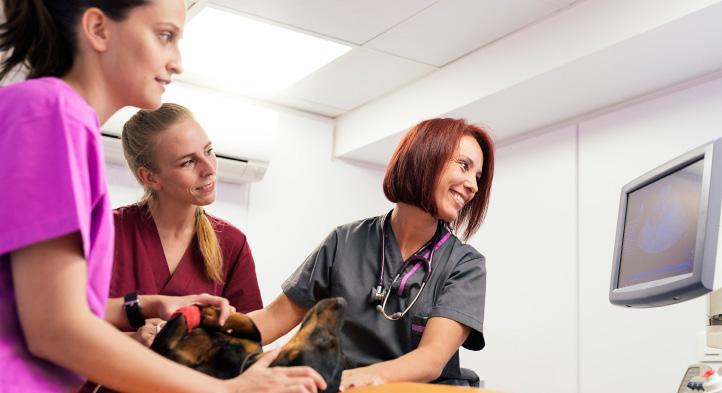
5 minute read
Medical school
Medical school applications

Advertisement
Familiarise with oth- er key ethical med- ical topics such as euthanasia, abortion, patients’ rights, pri- vatisation, informed consent, gender is- sues, and conflict of interest Ace your UCAS Personal Statement
It is crucial that you first visit your chosen medical school’s admissions website to make sure you know precisely what they want you to include in your UCAS application personal statement. Keep it as relevant as possible, showcasing your medical mentality, patient care and reference to your work experience.
Key things to demonstrate in your personal statement:
Your motives and inspiration for choosing medicine What explorations, volunteering, work experience and extra-curricular activities have you done. Reflect well on your experiences to demonstrate transferrable skills, capabilities and attributes that make you a suitable
candidate.
Extracurricular activities
Medical school admission tutors highly rate participation in extracurricular activities mainly because: They come with invaluable transferrable skills which complement with the profession They give them a picture of the kind of person you are. They demonstrate your ability to cope with the high pressures that come with studying and working in medicine and dentistry. In your application make sure you link possible transferable skills from any extracurricular activities (sports, clubs, societies, orchestra, voluntary/charitable activities). Highlight skills such as leadership, teamworking, interpersonal communication, collaboration and innova
Demonstrate extensive study and wider reading
Keep up-to-date with medical current affairs, the medical profession and NHS news Extensively read the General Medical Council’s ‘Good medical practice’ (https://www.gmc-uk.org/ ethical-guidance/ethical-guidance-for-doctors/ good-medical-practice) Regularly read The Doctor Magazine and BMJ


(British Medical Journal) news (https://www. bma.org.uk/news/ the-doctor and https:// www.gmc-uk.org/) Have a sound understanding of confidentiality and the four pillars of medical ethics:
Autonomy: respecting patient’s choice
Beneficence: doing what is in the best interests of the patient
Non-maleficence: doing no harm
Justice: doing what’s best for society as a whole
Familiarise with other key ethical medical topics such as euthanasia, abortion, patients’ rights, privatisation, informed consent, gender issues, and conflict of interest Knowledge of high profile diseases (such as coronavirus, AIDS, MMR, SARS, MRSA, H5N1, cancer).
Other signs of passion for medicine include watching medical television programmes, knowing the different specialities in medicine as well as reading books and periodicals on health related subjects.
Medical placement or work experience
Prior to submitting your application, try and get some form of medical placement or work experience. This could be at your local hospital, GP practice, medical centre, medical laboratory, Ambulance service unit, medical research centre, primary health centre or nursing care home.
In your application, reflect on and give examples of your personal experiences, learning outcomes and key skills expected from a medical doctor, such as empathy, communication skills, patient
interactions and the importance of focusing on the patient. To get a real good feel of what it’s like working in the medical field, shadow doctor, nurse or any other relevant medical professional. The broader your e work experience the more attractive your application.
Prepare for the interview
Use the Medical School’s website to find out more about the style of the interview. Whether it is a panel interview or a Multiple Mini Interview (MMI), do a lot of research on what to expect for that particular interview and the types of questions.

Prepare some good quality and original responses to help you on the day. Prepare some solid answers to justify why you chose that medical school and degree programme. Showcase your knowledge of the profession by having a clear understanding of the different progressions up to Consultant level and what particular pathway you are likely to take. Research about the medical school’s attached hospital, its speciality and its performance.

Thinking about; • Applying to Oxbridge, Russell Group, Ivy
League, or other top university? • Applying for a top graduate scheme, degree/higher apprenticeship, Big-4
Accounting firm, top Law Firm, top Investment Banking or Consulting Firm? • Applying for Medical School?
study & careers consulting

Our highly experienced Education and Careers Consultants are ready to help you make your dream come true. Email us on info@studycareers.org or call us at 03333 44 35 44 to discuss your requirements.

HIGHER/DEGREE APPRENTICESHIP ASSESSMENT CENTRE TIPS
Assessment days often consist of multiple activities that are designed to put your knowledge, aptitude and personality to the test. It can be tricky to know what to expect, so we have listed a number of activities you could expect on the assessment day. • Prior to the assessment, notify the employer of any special needs if you have any Do some prior research on what type of exercises the employers usually test on its assessment
Familiarise with the best approaches to impress in the various tests that are likely to be used
Have a good night sleep. Arrive on time, fresh and well prepared for an eventful day


Stay positive – the fact that they have picked you from thousands of applicants means you are pretty good!

During the exercises the employers will be assessing how you perform and conduct yourself so be assertive and a confident team player and showcase your interpersonal and teamworking skills Be passionate and show that you want to work for them and have a lot to offer.
Contribute to group activities. Avoid being too passive or being too dominant
Articulate your thoughts – unfortunately most assessors are not mind readers
Try to build rapport with other candidates (and assessors). Network, chat and be-friend other candidates during breaks and in-between activities to help you relax and boost your confidence, which might come in handy when interacting and working with them later in the day




